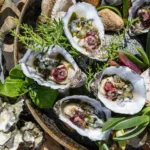Adivasi Diwas, commonly referred to as Indigenous Peoples’ Day, is a significant celebration of India’s indigenous groups’ rich cultural diversity, customs, and contributions. This day, which is observed every year on August 9th, raises awareness of the difficulties these communities face while also recognising their distinctive legacy and the necessity of preserving their way of life. The celebration of Adivasi Diwas strives to promote a spirit of harmony and understanding among all citizens while also drawing attention to the problems faced by indigenous peoples.
Historical Background
The name “Adivasi” comes from the Sanskrit words “adi,” which means native, and “vasi,” which means occupant. Adivasis are the indigenous or aboriginal communities of India, often known as Scheduled Tribes. These groups have existed on the Indian subcontinent for centuries, preserving their own identities in the face of shifting cultural and societal norms. Adivasi Diwas was established to recognise and honour the important contributions made by these people to the cultural and social fabric of the country.
Cultural Diversity and Heritage
Adivasi communities can be found all over India, and each one has its own unique traditions, rituals, and artistic styles. These indigenous groups, which range from the Gond tribes of central India to the Santhals of West Bengal and the Bhils of Rajasthan, collectively form a complex cultural tapestry. Adivasi Diwas provides a venue for showcasing their creative endeavours, which include elaborate traditional crafts, music, dance, and generational oral histories. The Adivasi way of life is reflected in these cultural treasures, which also shed light on their close relationship with nature.
Challenges and Resilience
While Adivasi Diwas is an occasion to celebrate cultural variety, it also serves as a reminder of the difficulties that indigenous groups endure. Adivasis have historically experienced marginalisation, discrimination, uprooting, and loss of land and resources. This day raises awareness of these problems and promotes the rights of indigenous people to land, healthcare, education, and participation in decision-making. The goal of efforts to increase awareness of these issues is to promote greater inclusivity and guarantee the protection of Adivasis rights and well-being.
Preserving Traditional Knowledge
Adivasi groups have a strong connection to the environment and a wealth of traditional knowledge on sustainable living methods. This is one of their distinguishing characteristics. Their ancient knowledge in fields like resource management, herbal medicine, and agriculture might provide insightful solutions for dealing with today’s environmental problems. Adivasi Diwas offers a venue for highlighting how crucial it is to keep this traditional knowledge alive and incorporate it into cutting-edge solutions for a more sustainable future.
Education and Empowerment
In order for Adivasi communities to overcome socioeconomic inequalities and actively participate in the development of the country, education is essential. However, because to issues including isolation, a lack of infrastructure, and cultural hurdles, many Adivasi children still struggle to obtain high-quality education. The need of providing these communities with equitable and culturally appropriate educational opportunities is highlighted by Adivasi Diwas, ensuring that young minds may learn while simultaneously appreciating their heritage.
Community Engagement and Solidarity
Adivasi Diwas is more than just a symbolic celebration; it also provides a forum for cross-cultural interaction and community engagement. Various cultural activities, workshops, and debates are planned on this day to foster communication and collaboration between Adivasi and non-Adivasi communities. This engagement promotes respect for one another, debunks misconceptions, and fills gaps between various societal groups.
Government Initiatives and Policies
Recognising Adivasi communities’ rights and attending to their issues has received more attention in recent years. The Indian government has put in place laws and programmes that support economic empowerment, better access to healthcare and education, and protection of their land rights. Adivasi Diwas provide a chance to assess the success of these efforts and push for more advancements.
Conclusion
Adivasi Diwas honours India’s indigenous groups by showcasing their rich cultural diversity, tenacity, and contributions. It serves as a reminder that these communities, despite the difficulties they encounter, continue to enrich the cultural diversity of the country and provide insightful information for a future that is both sustainable and inclusive. The important Adivasi history must be acknowledged and honoured as India develops in order to guarantee that their voices are heard, their rights are upheld, and their customs are maintained for future generations.
FAQ: Adivasi Diwas (Indigenous Peoples’ Day)
What is Adivasi Diwas?
Adivasi Diwas, sometimes referred to as Indigenous Peoples’ Day, is a yearly event observed on August 9th in India. It is an important event that draws attention to the cultural diversity, contributions, and difficulties encountered by India’s indigenous tribes, often known as Adivasis or Scheduled Tribes.
What is the historical background of Adivasi Diwas?
“Adivasi” is a noun that derives from the Sanskrit terms “adi,” which means native, and “vasi,” which means, “occupant.” The original residents of India were the Adivasis, who have preserved their own identities and customs for millennia. To acknowledge and celebrate these communities’ significant contributions to India’s cultural and social legacy, Adivasi Diwas was created.
What aspects of cultural diversity and heritage does Adivasi Diwas celebrate?
In India, there are numerous adivasi communities, each of which has its own distinctive customs, traditions, and forms of expression. This festival offers a venue for showcasing their customary arts, music, dance, and oral histories. These various communities, which range from the Gond tribes of central India to the Santhals of West Bengal and the Bhils of Rajasthan, contribute to a complex cultural tapestry that reflects their close ties to environment.
What challenges do indigenous communities face, and how does Adivasi Diwas address them?
Adivasi Diwas, although celebrating cultural uniqueness, also calls attention to the historical marginalisation, prejudice, and resource loss that Adivasis have experienced. The day provides a forum for promoting indigenous peoples’ rights to land, healthcare, education, and decision-making, encouraging inclusivity and wellbeing.
How does Adivasi Diwas emphasize the preservation of traditional knowledge?
Adivasi ethnic groups have a wealth of traditional wisdom in the fields of agriculture, resource management, and sustainable living. The necessity of maintaining this knowledge, which can provide insights into addressing current environmental concerns in novel ways, is emphasised by Adivasi Diwas.







